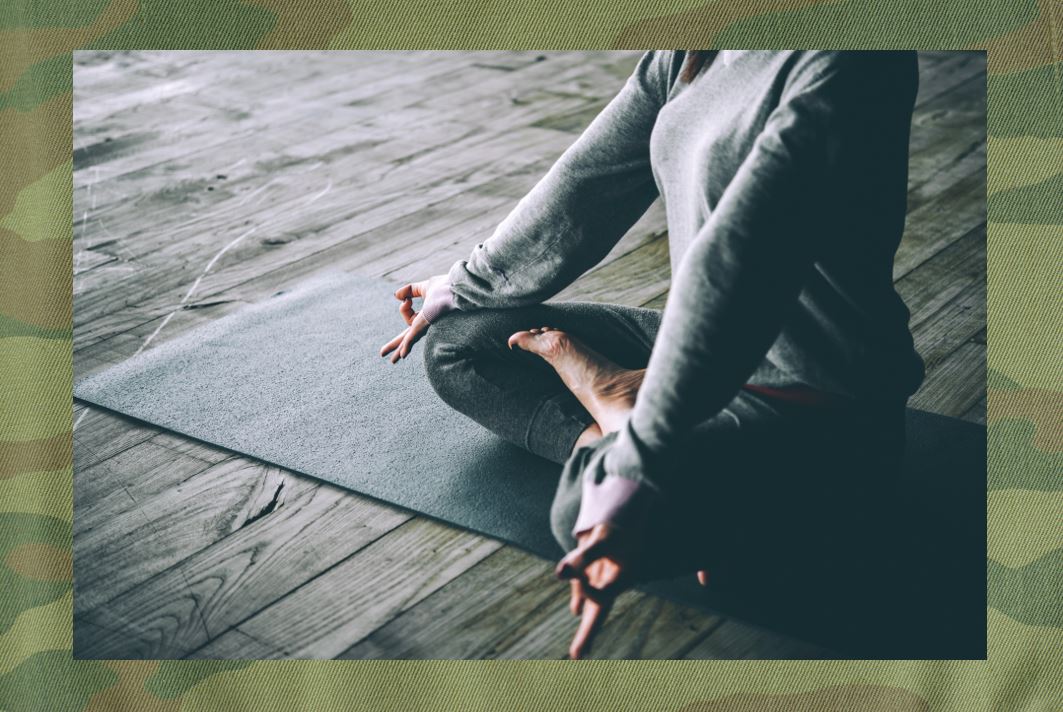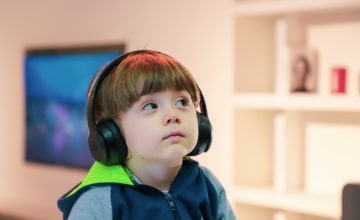Being a parent to a baby or toddler is beyond a full-time job. For military families, the daily challenges of parenting can be increased by the stresses of military life. As parents and caregivers, it’s easy to place our children’s interests above our own. Certainly, it is essential that we provide our young children with all the physical and emotional nurturing they need. Nurturing ourselves, however, is also a basic part of healthy parenting. When we ignore our own needs and forget to physically or emotionally refuel, we begin running on fumes. We need to do good things for ourselves to do good things for our children.
 Taking care of ourselves can benefit our children in another way. Babies and toddlers take their cues from the world around them. Their parents and caregivers, whom they love and adore, serve as models of behavior. A 20-month-old toddler, for example, runs and looks for her toothbrush every time Daddy brushes his teeth. Of course, being a role model is both a great honor and a great responsibility. It is important to be mindful of what we communicate with our words and actions. If we want our children to understand they are valuable and important then we, ourselves, need to model self-care. In this way, parents who learn to balance their own needs with those of their families may be supporting their babies and toddlers to develop a healthier sense of self.
Taking care of ourselves can benefit our children in another way. Babies and toddlers take their cues from the world around them. Their parents and caregivers, whom they love and adore, serve as models of behavior. A 20-month-old toddler, for example, runs and looks for her toothbrush every time Daddy brushes his teeth. Of course, being a role model is both a great honor and a great responsibility. It is important to be mindful of what we communicate with our words and actions. If we want our children to understand they are valuable and important then we, ourselves, need to model self-care. In this way, parents who learn to balance their own needs with those of their families may be supporting their babies and toddlers to develop a healthier sense of self.
Here are some basic steps to practicing self-CARE:
Consider Your Needs
Take a few moments to sit down and think about what gives you energy, strength, and a sense of calm. Is it sleep, exercise, bowling, spiritual reflection, a game of basketball, writing, gathering with friends? There are no right answers. However, make sure that the activities you consider are healthy for yourself and for your family. Self-care is about nurturing yourself, not engaging in behaviors that are temporarily distracting but potentially risky. For example, if getting a professional spa massage would increase your debt and, ultimately, your stress level, this is not an activity to put on your list. Instead, think about budgeting the time, rather than the money, for an at-home, do-it-yourself pedicure.
Arrange Your Schedule
Self-care activities can be coordinated with other scheduled events and written into calendars. When we write plans down, they become more concrete and substantial, worthy of being prioritized. Taking time for yourself should be considered as important as any other obligation. Plan in advance and then look forward to your self-care activity, particularly during stressful moments. On a smaller scale, it is important to take time for yourself on a daily basis. Enjoying coffee with the morning newspaper, taking a power walk, doing the crossword puzzle, and so forth can all help recharge our batteries each and every day. Schedule a recurring appointment with yourself, as little as a half hour, and enjoy some quality “me” time on a regular basis.
Resolve to Follow Through
Now that you have given yourself permission to take time for yourself, it is important to safeguard these events. Consider what needs to be in place for you to follow through with your plans. Will you need child care? Is transportation an issue? Do you have a backup plan if something changes? It’s important to address all of these issues now, so that you feel comfortable later when following through with your plans.
You should be open and honest with your children about taking time for yourself. If, for example, you are leaving your baby or toddler with a child-care provider, remember to say good-bye and not sneak away while your child’s distracted. The mother of a toddler who is crying and clinging to her leg might say “Mommy is going to spend some time with Miss Sara. Sometimes mommies need to play with their friends, too. I love you very much, and Miss Alice is going to take very good care of you today. I will be back before your favorite cartoon this afternoon.” A father who has been looking forward to his favorite time at sunrise might tell his 2-year old, who has crept out of bed early, “Good morning. You’re up very early. I’m right in the middle of reading the newspaper. Why don’t you come snuggle with me and color until I am done. Then, I will be glad to play with you.” Talking openly reminds everyone that there’s nothing to feel guilty about. You’ll have more to offer after recharging.
Encourage Others to Take Care of Themselves
Self-care is a gift to share with others. Once you have learned the importance of nurturing yourself, support others in doing the same. If you have friends, military or civilian, who seem emotionally or physically drained, encourage them to look after themselves. Help them to brainstorm activities and ways to follow through on self-care. Refer them to supportive resources. Teaching others about self-care will reinforce the lesson that you have already learned: Healthy self equals healthy parent.
ZERO TO THREE is a national nonprofit whose mission is to support the healthy development and well-being of infants, toddlers, and their families. For more information on ways to support you and your young children, visit our Web site at: www.zerotothree.org/military
Copyright 2007 © ZERO TO THREE. To obtain permission to reproduce this article, please e-mail us at: comingtogethercra@zerotothree.org
The Importance of Caring for Yourself During Periods of Military-Related Stress




